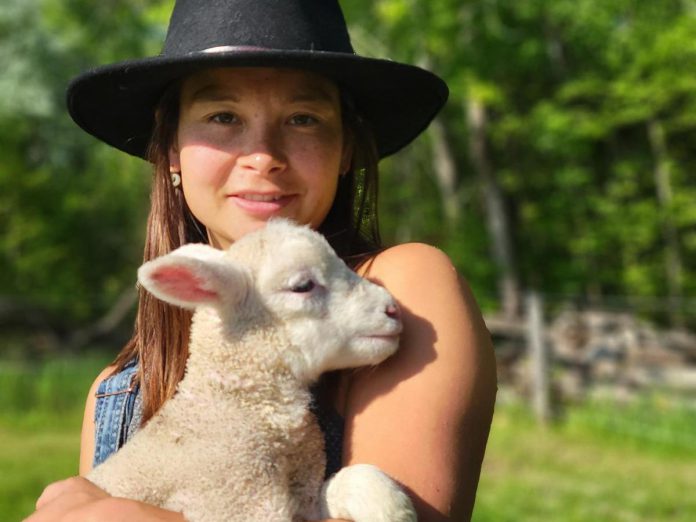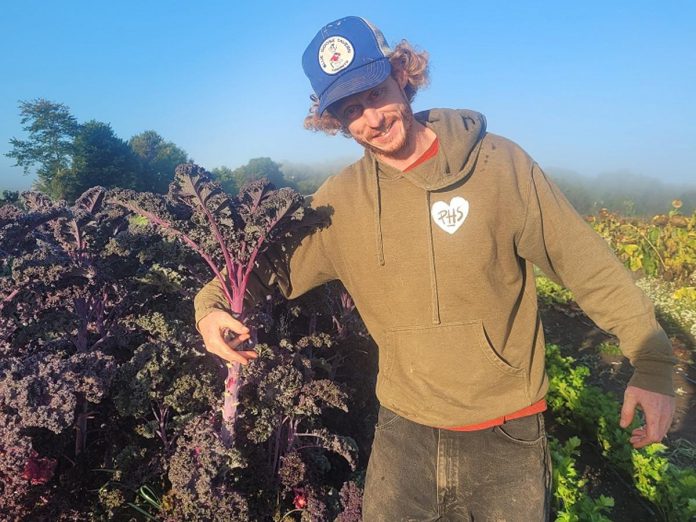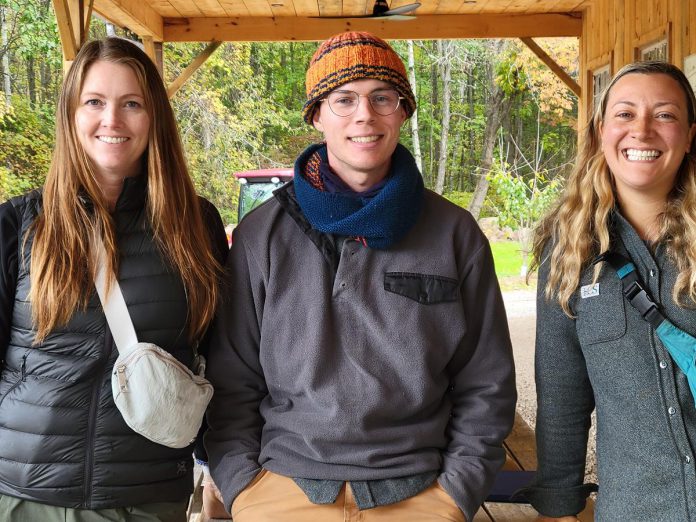
After a successful inaugural year, GreenUp is launching year two of the Net Zero Farms pilot project connected to the Green Economy Peterborough (GEP) business program. The pilot, which began in the fall of 2023, is designed to support and guide farmers in Peterborough and surrounding area to identify and reduce greenhouse gas (GHG) emissions on farms.
“Farmers are some of the best problem-solvers I know, and they control one of the most interesting pieces in the climate change puzzle,” says Beatrice (Bea) Chan, the new program coordinator for Net Zero Farms at GreenUP.
Chan, who will help guide farmers through the program, runs her own farm in Selwyn Township raising sheep, pastured chickens, laying hens, and growing cut flowers. She also has experience working on a variety of farms in the Peterborough and Kawartha region.
“I’m looking forward to working with our local farmers in this capacity,” she says.
GEP is seeking a cohort of farmers who will work together through the Net Zero Farms project, allowing them to network and problem solve with one another to build a support system as they go forward to become environmental leaders in the farming community.
Through their involvement, farms will identify and collect data on GHG emissions and carbon sinks on their farm and identify opportunities for emissions reductions. This pilot will contribute to our community by supporting farms in working toward Canada’s target of net zero emissions by 2025.
Below are some highlights from the farms that participated in last year’s Net Zero Farms cohort.

Josh Blank of Carrot Top Organics, a mixed veggie farmer in Asphodel Norwoodm was an active member of the first cohort. He found the program to be helpful for data-driven management on his farm, as well as for promotion within a competitive market.
“Having Carrot Top Organics promoted as part of the Net Zero Farms program reinforced loyalty among my existing customers and gave me a leg up with new ones by showcasing the important work we’re doing on the farm, and reminding customers how their food is grown,” Blank said.
He emphasized that collecting and using data in decision making can be a challenge for farms. Being a part of the program has helped him make better data-informed decisions.
The Northcote Campus Farm of Lakefield College School is also a founding member of the first cohort. The Northcote Farm has a market garden designed to be a teaching space for students to learn about farming and food systems.
Students have been involved in the entire farming process, from planting and weeding, to harvesting and seed saving. In their dining hall, they eat the food they have helped to grow.
Lakefield College School faculty plan to integrate the results from their Net Zero Farms Inventory Report into their teaching curriculum, giving students a first-hand understanding of how growing methods can impact GHG emissions.

If you or a farmer you know is interested in being a part of this year’s cohort of the Net Zero Farms Program, please visit greenup.on.ca/gep-net-zero-farms/ or contact Bea at beatrice.chan@greenup.on.ca.
The Net Zero Farms pilot project is an initiative of Green Economy Peterborough (GEP).
Being a part of the pilot project offers farms and agribusinesses a 75 per cent subsidized membership to GEP.



























